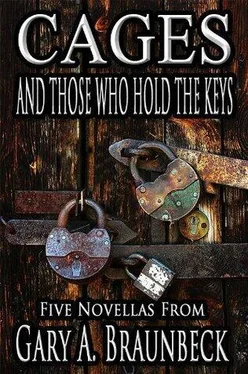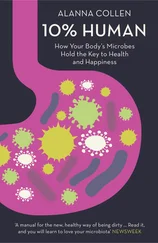I looked at him. “The Road?”
He gave a short nod of his head. The wires in his skull stretched as he did so. “The Road demands its sacrifices, as any self-respecting god would.”
“God?” I said. “So that would make you…what?”
He smiled. “Think of me as the high priest.” He began turning the chair around. “Shall we, then? Get on with it?”
I stood my ground. (Not as heroic or brave as it sounds—I was still scared as hell.) “What exactly are we getting on with?” He stopped, sighed, then turned back toward me. “Why must you try my patience so early on in our relationship, Driver?” “I wasn’t aware that we had a ‘relationship’.” “Oh, we do, Driver. That we do.” “What’s going on? What are you planning to do with me?”
“That is for the Road, and not me, to decide. I am only your guide—and you’re making it dreadfully difficult for me to discharge that duty. What the Road decides, it decides between midnight and dawn. We have only a few hours remaining before your options run out. Cooperate, and you may just be on your way back home come first light. Continue to be difficult, and here you’ll remain for the rest of your days.” He rolled closer, glaring at me. “Do I make myself clear?”
“Yes sir.”
“Again with the ‘sir’ business. I could get used to that.”
We continued down the corridor toward a set of heavy iron doors. As we neared them, a security camera mounted over the top of the doorway made a soft whirr , a red light clicked on, and a set of locks within the doors disengaged.
“These doors usually require a card-key,” said Daddy Bliss, “but since I have no arms, for me they will open once visual identification has been made.” He looked up at the camera and smiled.
The doors opened, and I was immediately assaulted with the sounds of a factory floor at full production speed. The smells of machine grease, metal, warm plastic, dust, and a hundred other scents put my sense of smell into overdrive, and I remembered how both my parents used to smell when they came home from a hard day on the line.
I followed Daddy Bliss through the doors into a cage-style elevator. When the iron doors closed behind us, the back wall of the elevator dropped into place and the whole contraption began to rise. I reached out and grabbed two of the bars to steady myself. “Afraid of heights, am I correct?” asked Daddy Bliss. “Ever since I fell out of a tree in our backyard when I was five,” I replied. “You needn’t worry, Driver. This elevator is perhaps the safest one in the country.”
It continued to rise like a roller coaster car clack-clack-clacking up the tracks toward that drop that you just knew was going to send your balls up into your throat, and a few moments later the elevator stopped, shuddered, made a clack-clack-clacking of its own, and shifted forward, the top mechanisms connecting with an overhead track and pulling us forward.
“There will be a bit of a lurch in a moment,” said Daddy Bliss. “It’s nothing to be concerned with.”
“Uh-huh.”
The elevator lurched, dropping down about a foot as the whole shebang left the safety of the platform and hung suspended thirty feet above the factory floor. Once my initial panic was over, I realized that both the moving mechanism and the overhead track were solid. The ride was smooth. Daddy Bliss grinned at me. “Better now?” “Yes, thank you.” “Then I’ll ask you to step over here and look down, please.” 0“I’d rather not.” “The heights business again?” “The heights business again.” “I assure that we are perfectly safe. Now, come here.” I moved toward the side, not once lifting my feet. Somehow it felt safer if I slid toward him.
Below us I saw three separate work areas, each one crowded with equipment and machinery that dwarfed those people working the line. I had no idea what I was looking at, what these machines were called or what function they served. I did recognize a lathe press because Dad used to operate one, and an area near one of the walls was used for wiring small circuitry chips—this I knew because Mom used to do the same thing, only she wired chips for all-night banking machines. These two things aside, I couldn’t tell you what was what or what purpose it served.
The only thing that was obvious to me was that each line started with some part of a trashed automobile; a door, a dashboard, steering wheel units, under-hood components, instrument panels, floor pedals, and other parts both external and internal that I couldn’t place because they’d been removed from whatever it was they’d been attached to in the first place.
The cage glided over the factory floor as the workers continued with their labors. I couldn’t see what parts of the workers had been repaired from up here, save for a few people who—like Dash—had large sections of their skulls replaced with metal plates.
Daddy Bliss said, “Now here is where we see whether or not you’ve got half a brain, Driver. Take a good look at what’s going on down there, and see if you can spot the one thing that all this busy bee-like activity has in common.”
“Is this part of whatever test it is you’re giving me?”
He sighed. “You mustn’t think of this as a test , it will add far too much pressure on your nerves. Think of it more as an assessment, an evaluation, a review.”
“In other words, a test.”
“Have it your way, then. Now, take a good look and see if you can answer the question.”
I studied the activity, though from above it was impossible to see any detail work. It wasn’t until I saw one of the workers use a pair of industrial shears to strip the covering off of a control panel that I knew the answer.
“Plastic,” I said. “They’re removing all the plastic from what’s left of the cars.”
Daddy Bliss smiled. “Bravo, dear boy, bravo—though I feel compelled to point out, for the sake of accuracy, that it isn’t precisely plastic . It’s polypropylene, a form of thermoplastic. Did you know that the average car has 245.5 pounds of plastic? The ever-increasing use of plastics in automobiles helps reduce vehicle weight, thus improving gas mileage and reducing greenhouse gas emissions. A total of 4.19 billion pounds of plastic will be used in North American autos and light trucks this year, increasing to about 5.63 billion pounds within the next decade.” He laughed. “All that wonderful raw material, recycled over and over again.”
“Is this where you make the parts for people to be repaired?”
“Hm? Oh, goodness gracious me, no. The Repair facility is located about a mile away—in fact, I think Hummer drove by it just so you could see the place.”
I remembered the worker and his tail-light eye and went cold. “Yeah, I saw it.”
“Excellent. Here is where we manufacture our goods. We produce a limited, specialized line of products here.”
The cage was nearing the farthest end of the factory floor. Below us, I could see several rows of molds arranged inside shelves that were built into the walls. There was something like a large oven, and another huge contraption that looked like some kind of cooling unit, and then an area where the melted, molded, and cooled final product was cut into shape. “Jesus…” I whispered. They manufactured custom-made HO-tracks and cars. I looked at Daddy Bliss. “Is this where Miss Driscoll got her track and cars? From you?” “Her name is Road Mama, Driver, and, yes, we make every piece of track and every car to specification.” “And all of it’s made from the polypropylene taken from wrecked automobiles?”
“The track is made from the polypropylene. The cars are made from whatever is left over from the raw materials—the automobiles—once the polypropylene has been taken. Not one piece of raw material goes to waste. It is in this way that the cycle of production and purpose keeps turning, pardon my lapsing into pathetic poeticisms.”
Читать дальше












